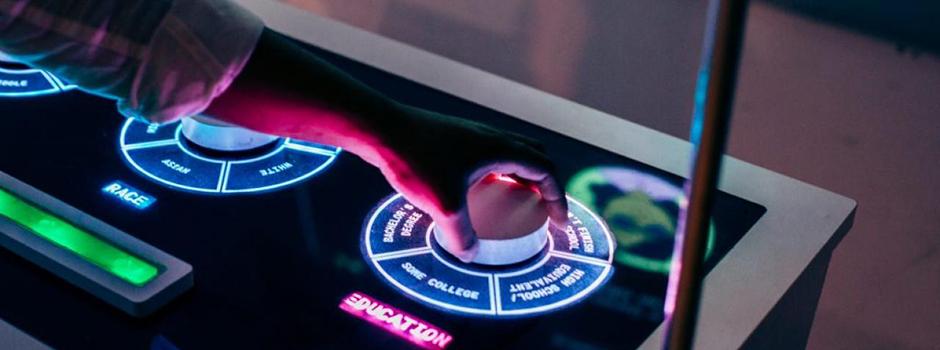NYU Shanghai and New York University’s Tisch School of the Arts have launched a low-residency year-long Master of Arts in Interactive Media Arts. In its inaugural year, the program will combine two semesters of online study with three required in-person residencies at NYU sites in Shanghai, New York, and Berlin.
The program’s unique structure is designed to give students a flexible option for graduate study, and will help provide a thorough understanding of computational media and technology in global contexts. Each year, the program will have three required residency locations, with residencies in Shanghai and New York over two summers, with a third residency location to be selected each year from NYU’s 11 global academic centers.
The new degree is a collaboration between the Interactive Media Arts Program (IMA) at NYU Shanghai and the Interactive Telecommunications Program (ITP) at NYU Tisch. The program is focused on the production, application and understanding of interactive media for creative expression and critical engagement.
“NYU Shanghai’s popular IMA program originally developed as an undergraduate iteration of the Tisch School of the Arts' well-known ITP program in New York, whose faculty and graduates played a vital role in imagining it and bringing it into being,” said NYU Shanghai Provost, Joanna Waley-Cohen. “This joint low-residency Masters’ Program builds in innovative ways on the strengths of both IMA and ITP to create something brand new that represents the best of both.”
“The strength of NYU’s global network provides an ideal opportunity for working professionals of all stripes to further explore the possibilities for creative experimentation and engender a deeper understanding of the world around us through the use of new technologies,” said Dan O’Sullivan, Associate Dean for Emerging Media at the Tisch School of the Arts and the TBS Chair at ITP.
“In our constantly-evolving society, we recognize a need to reinvent our degree offerings to be more accessible, in order to attract a wider range of students from around the globe. We’d like teachers, artists, creatives, policy-makers, philosophers and other working professionals to apply because we believe that a diverse student body will bring compelling cross-cultural insights to the interrogation of political and social issues as well as inspire unique and meaningful collaborations,” said NYU Tisch Assistant Arts Professor and program director, Craig Protzel.
During the in-person sessions, local and international instructors will lead courses, conversations, workshops and site visits. The first group of students will kick-off the program in July 2020 through a five-week immersion in the cultural and commercial activities of Shanghai, participating in local dialogue series, artist talks, and industry visits. Students will also have full access to the IMA labs and makerspaces at NYU Shanghai.
Online courses will be taught in the fall and spring semesters by dedicated faculty experienced in guiding groups of students in semester-long project work. The fall 2020 semester will continue to develop students’ technical skills and practice-based research with an emphasis on creating connected applications, critical making, and user experience.
During the two-week January 2021 session in Berlin, students will explore the implications of interactive media, and connect with the city’s local community of emerging media artists, designers, and thinkers. The Berlin residency will be followed by two faculty-led online courses in the spring 2021 semester. The final five-week in-person residency in summer 2021 will be carried out at New York University’s brand new Media, Technology and Arts building in Brooklyn. There, students will finalize thesis projects and connect with the extensive and vibrant ITP community.
The curriculum is curated specifically for students in the low residency program, allowing them to collaborate across cities and time zones while developing interactive projects. Ultimately, the program aims to create active citizens who can critique systems of production and push the boundaries of artistic expression while embodying a spirit of experimentation, collaboration and community.
For more information on the program, please visit the program website


